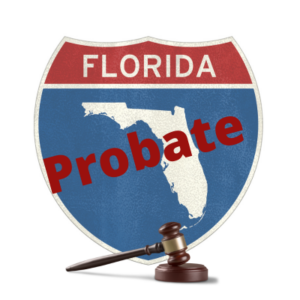Electing Summary Administration in Florida Probate: A Smart Move for Smaller Estates
 By: Anthony Cetrangelo, Jr., Esq.
By: Anthony Cetrangelo, Jr., Esq.
Navigating the probate process in Florida can feel like an uphill battle. Many clients I talk to are shocked when they learn how long and complex it can be. However, for estates that meet certain criteria, Florida law provides a streamlined option: Summary Administration.
Here’s what you need to know about this more expedited probate administration and how to determine if it’s the right move.
What is Summary Administration Probate?
Under Florida Statute, Summary Administration is a simplified form of probate for certain estates:
- Estate Value $75,000 or Less. When the value of the entire estate subject to administration in Florida, less exempt property, is $75,000 or less, or;
- Deceased More than Two-Years. If the decedent has been deceased for more than two years.
Unlike Formal Administration, which requires the appointment of a Personal Representative (PR) and often takes many months (or longer), Summary Administration can be completed relatively quickly and with fewer costs.
Why Consider Summary Administration Probate?
Here are a few compelling reasons why electing Summary Administration makes sense for eligible Florida estates:
- Speed. Summary Administration usually ends up much faster than Formal Administration. No PR appointment, no ongoing reporting obligations—it’s generally more efficient under the right set of circumstances.
- Cost Savings. Legal fees and court costs are typically lower in Summary Administration since the process involves fewer steps.
- Two-Year Rule Benefit. If the decedent died more than two years ago, creditors can’t make claims against the estate. This effectively generally cuts off potential creditor claims without formal notices.
- Flexibility for Smaller Estates. Families with modest estates, especially when there’s no complex asset distribution, often prefer this streamlined option if applicable.
Eligibility Checklist
Below is a simple checklist to see if an estate qualifies:
- The decedent was a Florida resident (or owned real property in Florida).
- The total value of probate assets is $75,000 or less (excluding exempt property like homestead), OR the decedent died more than two years ago.
- All heirs and beneficiaries agree to the summary process and will sign consents.
- There are no known, unresolved creditor claims—or two years have passed since death.
Key Considerations
While Summary Administration can be a lifesaver for smaller estates, it is not always the best fit. There are two common situations where Formal Administration is more appropriate:
- Complex Family Dynamics. If there are disputes among heirs or missing beneficiaries, the process can get delayed or complicated.
- Creditor Claims. If there are known creditors and the estate is less than two years old, Summary Administration may not be wise. Formal Administration may be required to properly notify creditors and satisfy claims.
Final Thoughts
Summary Administration isn’t a magic bullet for every Florida estate, but for families dealing with modest assets or a decedent who passed away more than two years ago, it’s a fantastic potential option. It reduces time, expense and stress, allowing beneficiaries to move forward with far fewer hurdles.
If you are considering Summary Administration or would like to know if your situation qualifies, it is worth having a conversation with a Florida probate attorney. Knowing your options can make all the difference in handling your loved one’s estate efficiently. I may be reached at anthony.cetrangelo@henlaw.com to schedule a consultation.

